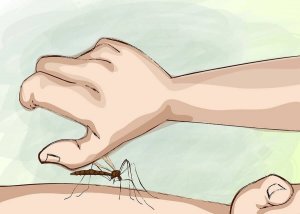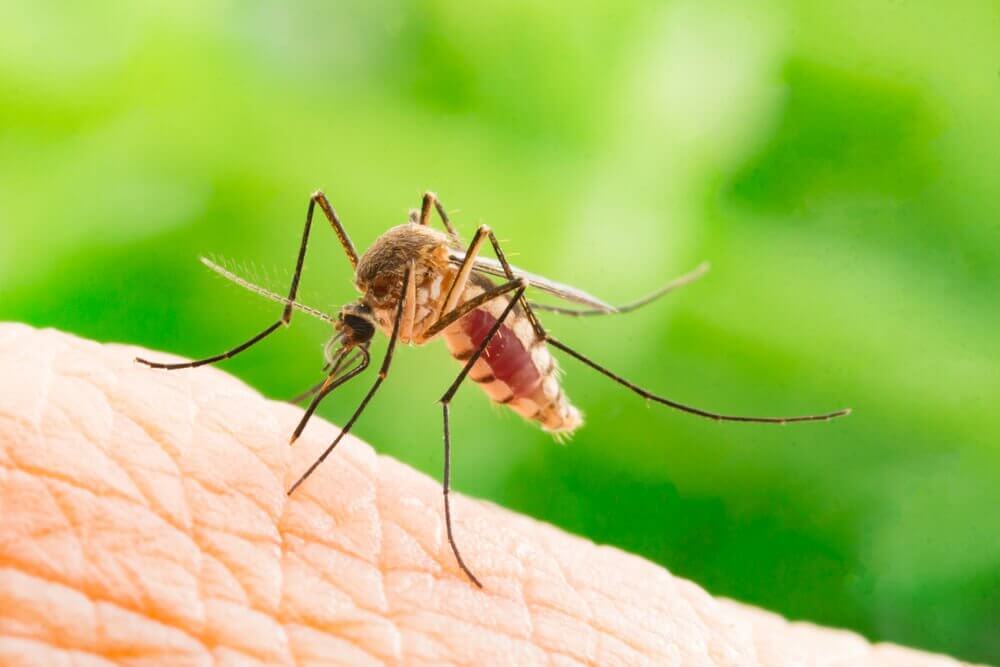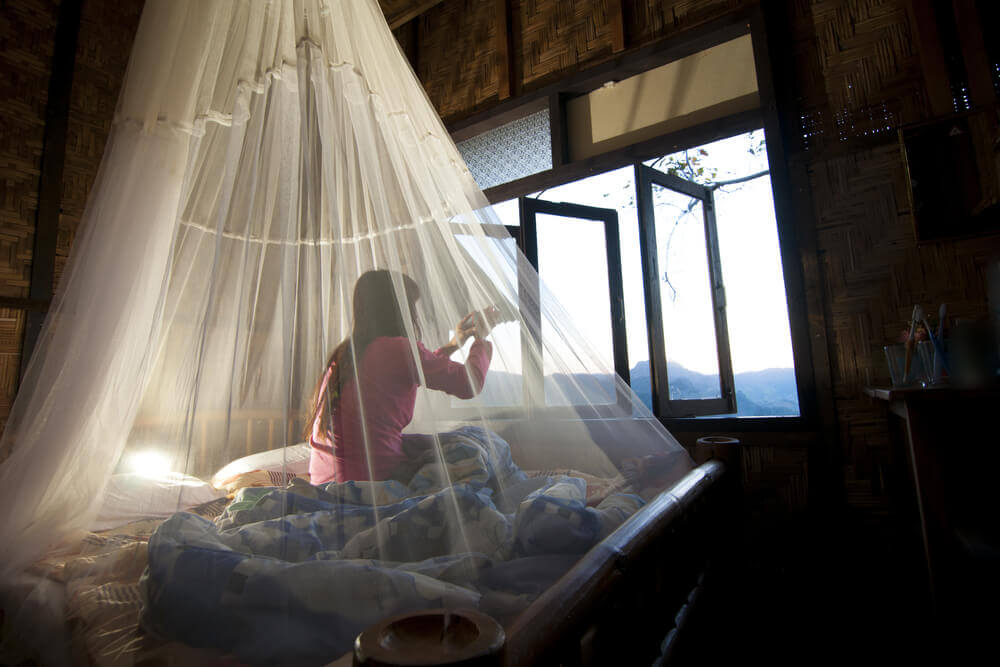How Can You Avoid Mosquito Bites During the Night?

Getting bitten by mosquitoes during the night is quite annoying. Their bites cause itching, swelling and, sometimes even allergic reactions.
The female is responsible for the attacks. She uses her sharp, needle-like mouth (proboscis) to extract the blood of her victims in favor of her egg production. In this article, you’ll learn how to avoid mosquito bites during the night.
Although the bite doesn’t usually cause pain, the saliva released by the bug causes a red bump on the skin. Afterwards, symptoms such as itching, blisters or rashes appear. However, the greatest risk is the spread of diseases such as dengue fever and malaria, among others.
Why do mosquitoes bite?

Other factors that attract mosquitoes
Insects lurk at any time of the day, but nocturnal bites from mosquitoes are very common. They don’t do it on a whim, nor by chance; Apparently, they have a biological clock like humans. That’s what guides them to go out at night to look for their sustenance.
Generally, mosquitoes are attracted to people who emit greater amounts of carbon dioxide, such as the elderly and pregnant women. They’re also attracted to those who do not bathe, move too much, use sweet perfumes or suffer from excessive sweating on their feet.
Mosquitoes do not have good eyesight, but they do have a good sense of smell. The smell leads it to its victim. And it is the individual that gets bitten who determines the intensity of the response to the bite.
How can you prevent mosquito bites at night?

Other ways to repel mosquitoes

- Wear anti-mosquito bracelets. Their composition of citronella and other repellents provides security.
- Wear suitable clothing. Long, light-colored garments serve as protection.
- Resort to natural medicine. Near access points and windows you can have plants or substances that scare away mosquitoes. Vinegar, basil, eucalyptus and thyme are suitable for this. Vaporizer plugs are practical and easy to use.
- Be hygienic. Although it sounds obvious, it’s necessary to disinfect sheets with hot water and a vacuum to prevent insects. It’s also necessary to clean bed drawers, the headboard and fumigate.
After getting bitten, it is recommended to wash the area, avoid scratching and place cold compresses. If it stings too much, you can take an antihistamine recommended by the doctor. If it gets infected, the best thing to do is visit your nearest health center.
All cited sources were thoroughly reviewed by our team to ensure their quality, reliability, currency, and validity. The bibliography of this article was considered reliable and of academic or scientific accuracy.
- Fernández-Grandon GM, Gezan SA, Armour JAL, Pickett JA, Logan JG (2015) Heritability of Attractiveness to Mosquitoes. PLOS ONE 10(4): e0122716. https://doi.org/10.1371/journal.pone.0122716
- Shirai, Y., Funada, H., Seki, T., Morohashi, M., & Kamimura, K. (2004). Landing preference of Aedes albopictus (Diptera: Culicidae) on human skin among ABO blood groups, secretors or nonsecretors, and ABH antigens. Journal of medical entomology, 41 4, 796-9.
- Smallegange, R. C., Verhulst, N. O., & Takken, W. (2011). Sweaty skin: An invitation to bite? Trends in Parasitology. https://doi.org/10.1016/j.pt.2010.12.009
- Zwiebel, L. J., & Takken, W. (2004). Olfactory regulation of mosquito-host interactions. In Insect Biochemistry and Molecular Biology. https://doi.org/10.1016/j.ibmb.2004.03.017
This text is provided for informational purposes only and does not replace consultation with a professional. If in doubt, consult your specialist.








